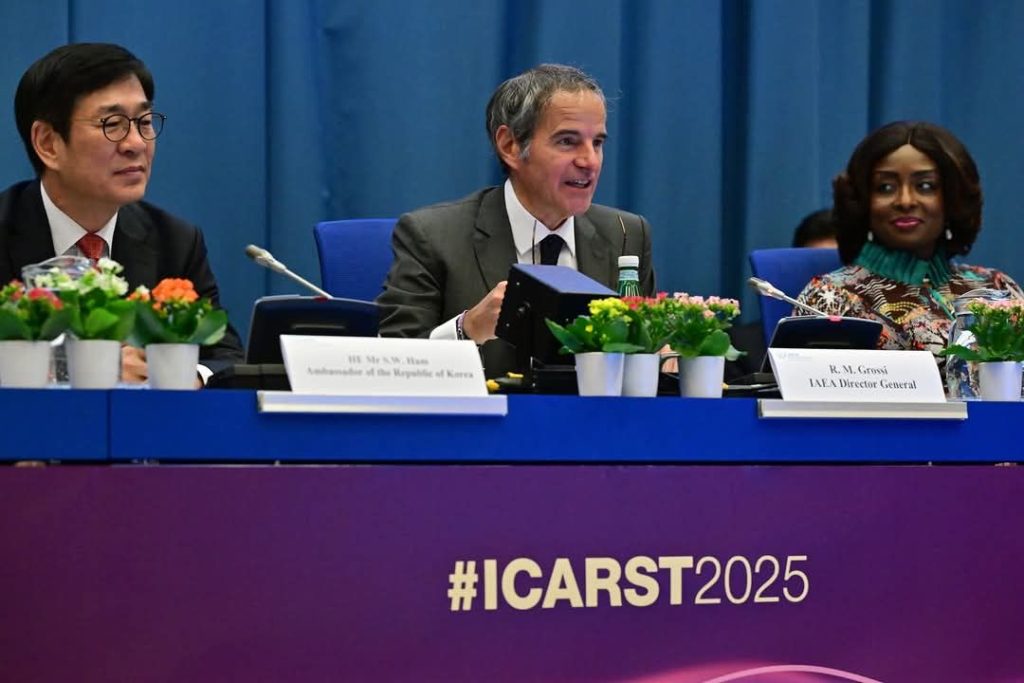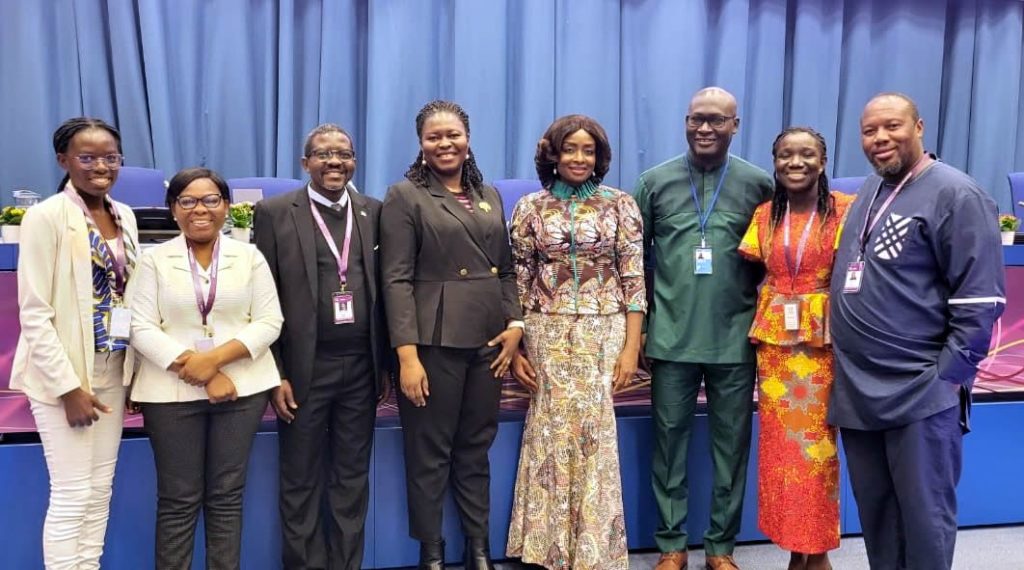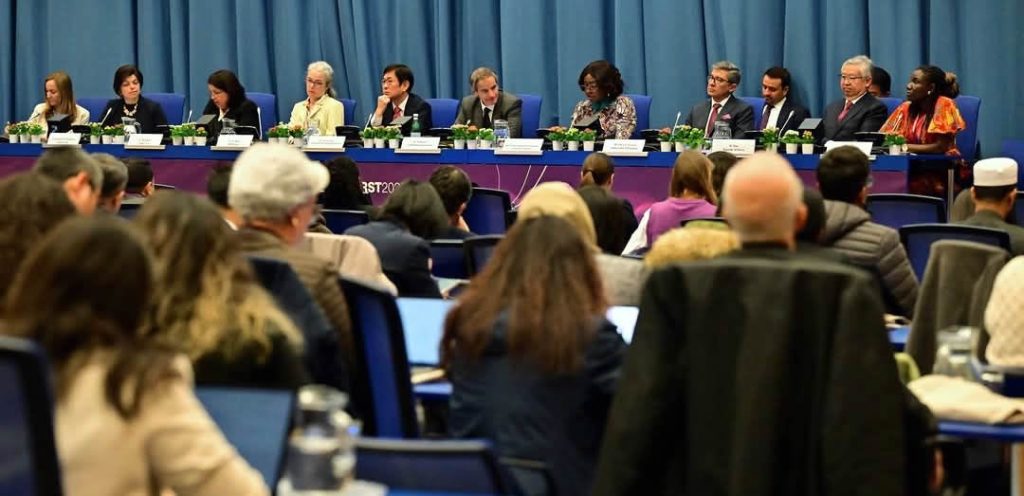Third International Conference on Applications of Radiation Science and Technology (ICARST-2025)

Africa Regional Preparatory Meeting for the 15th United Nations Congress on Crime Prevention & Criminal Justice
April 11, 2025
H.E. Matilda Alomatu Osei-Agyeman Addresses the Ghanaian Community in Graz
April 27, 2025
H.E. Mrs. Matilda Aku ALOMATU OSEI-AGYEMAN, Ambassador & Resident Representative of Ghana to the IAEA, who is also the Chairperson of the IAEA Board of Governors shared experiences on Ghana’s commitment as a country developing a pilot scale plant on recycling plastics. In fact, among the 9 pilot Member States under the NUTEC plastics initiative. The country takes great pride in our progress as the only African country among nine Member States to establish a pilot-scale plant for recycling plastics, and we are confident that this will significantly reduce plastic waste while fostering greater awareness of sustainable practices within our communities.
It is necessary to secure sufficient funding and advanced technology necessary for scaling up our operations. As we may be aware, sustaining a robust recycling facility demands significant investment so we look to innovative financing models including Public-Private partnerships (PPPs), grants and international funding. This will propel Ghana to continue to serve as a model for further innovations in radiation technology including its continued integration into plastic waste management. Ghana will then witness radiation-based plastic recycling gain more traction and become commercially available and competitive .
It is encouraging that further research is always the way to go to test, refine, and validate this technology of radiation based plastic recycling, in our quest for sustainability. We must continue to invest in research and development. Sustained support from the IAEA and our partners in research and development as well as capacity building should spur us on.
Sensitisation , enhancing public engagement and education on the importance of recycling is crucial for our long-term success.
We hope to establishment of Centre of Excellence in Nuclear Technology for Controlling Plastic Pollution (NUTEC Plastics) in Ghana.
We greatly appreciate the support of the IAEA and other partners in addressing these challenges, especially in upgrading our Gamma Facility and adopting Electron Beam technology. These advancements will not only accelerate technology adoption within the scientific community but also facilitate its integration into the private sector, furthering our collective goal of sustainability.
Under the issue of radio tracers, Ghanaian industries have been benefiting from the use of radiotracer and gamma column scanning techniques. This is especially the case in petro-chemicals, oil and gas, cement, breweries, mining sectors.
Two decades ago, Ghana began leveraging radiotracer technology in the petrochemical industry, where its remarkable benefits quickly became evident. This success paved the way for its expansion into the mining sector, optimizing operations and driving efficiency.
To be specific, radiotracers have been used in the mining industry to assess mixing efficiency in mills, residence time distribution studies, to assess common anomalies such as stagnancy, internal recirculation, short-circuiting, channeling and dead volumes. Radiotracers were used to detect leakages in pipes.
As you have already indicated, the gamma column scanning has also been applied to the petrochemical industry. To expand on this, distillation columns were scanned to determine malfunctions in them and also for baseline data on a newly installed refinery.
Now, as we look to the future, it is essential to secure IAEA support to train the next generation of radiotracer experts, ensuring the continued advancement, modernisation of equipment and access to more radiotracers to enable us to continue to exact the benefit from the application of this transformative technology.
Ghana further looks forward to the expansion of the applications to cover the power generation and the pharmaceutical industries, respectively.





